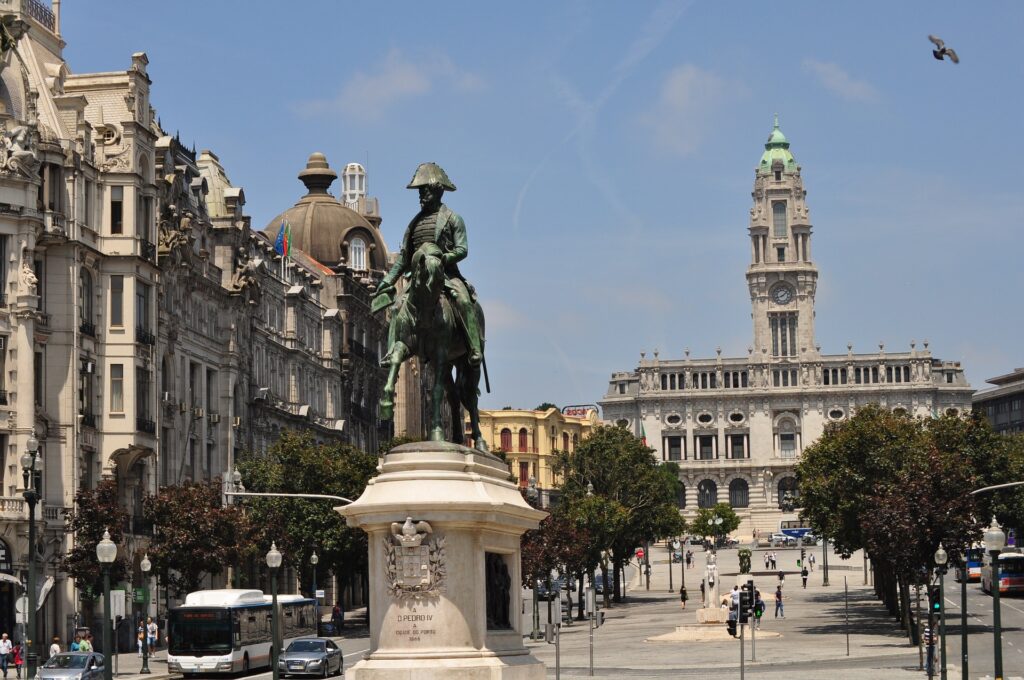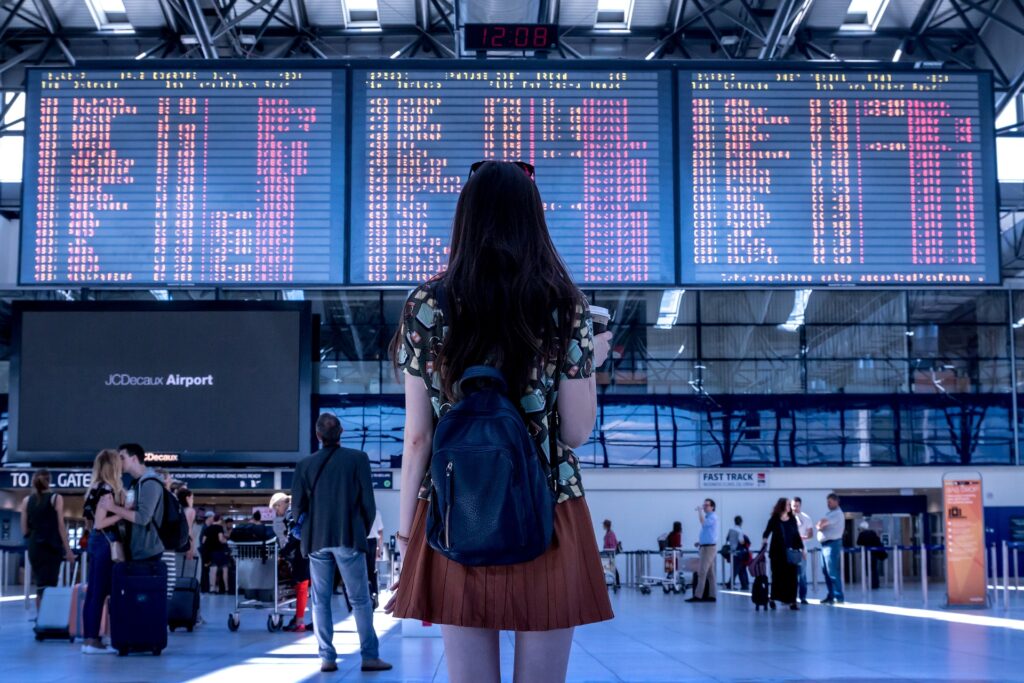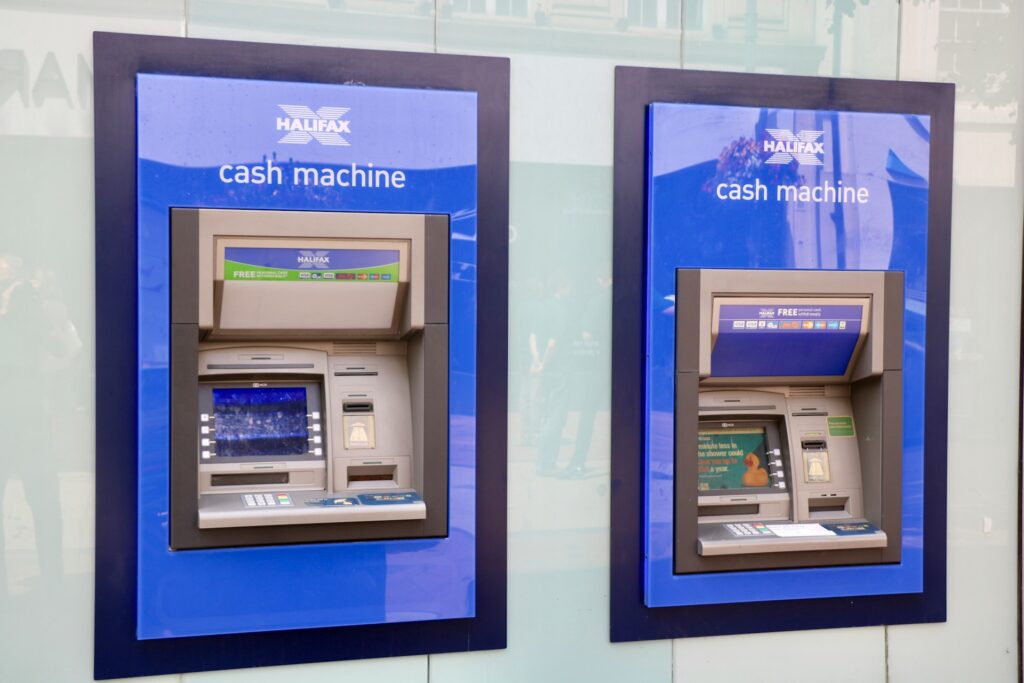If you’re planning a trip to Porto, having access to euros is an important part of making your stay comfortable. While credit and debit cards are accepted in most places, there are still times when you’ll need cash—whether it’s paying for a tram ticket, tipping your server, or buying souvenirs at a local market. That’s why knowing where and how to exchange money matters.
Many visitors fall into the trap of exchanging currency at the airport or using unreliable counters that offer poor rates and hidden fees. Some shops advertise “no commission,” but the actual exchange rate is adjusted to cover their profit, which means you get less for your money. These small losses can add up over a trip.
Porto is growing in popularity, and for good reason. According to Time Out magazine, Porto was ranked 10th among the best cities in the world. It’s no surprise people are visiting in large numbers but that also means more tourist-targeted money traps.
This blog will help you avoid those mistakes and show you how to get the best value when exchanging money in Porto.

Should You Bring Euros or Exchange in Porto?
One of the first money-related decisions travelers face is whether to bring euros from home or exchange currency after arriving in Porto. There’s no one-size-fits-all answer as it depends on how much you value convenience versus getting the best exchange rate.
Porto was named one of the Top Cities in the World in the 2024 Condé Nast Traveler Readers’ Choice Awards, attracting more visitors every year. Bringing euros before your trip can offer peace of mind. You’ll have cash ready for transport, food, and small expenses right after landing. However, the downside is that banks or exchange offices in your home country may charge higher rates or tack on fees. You might end up receiving less euros for your money than if you exchanged it locally.
On the other hand, Porto has several trustworthy options for exchanging money once you’re there. Shops like Nova Câmbios and Unicâmbio are known for better rates and lower fees than what you’d find at airports or hotels. Plus, using local ATMs linked to Multibanco (Portugal’s main banking network) can also be a smart choice: just avoid privately operated machines like Euronet.
A good rule is to carry around €50 to €100 in cash when you arrive. That’s enough to cover basic needs without forcing you into a bad exchange at the airport.
Porto has become one of Europe’s most popular destinations, not just for its charm and riverside views, but also for its growing status in the culinary world. In fact, The Michelin Guide recently revealed that Porto will host the Michelin Guide Gala in 2025, making it even more important for travelers to plan wisely, including how they handle their money.
Is the Airport in Porto a Good Place to Exchange Money?
Francisco Sá Carneiro Airport, Porto’s main international gateway, is well-equipped with a range of traveler services, including currency exchange counters. As you pass through arrivals, you’ll notice booths operated by companies like Global Exchange, placed conveniently for tourists who need cash immediately after landing.
While these counters are easy to access, they’re not always the smartest place to exchange large amounts of money. The exchange rates at the airport are typically less favorable than what you’ll find in the city. Even when counters display signs that say “0% commission,” the rate itself is often adjusted to include hidden fees. For example, the spread between the buy and sell price is usually wider, which means you get fewer euros per dollar, pound, or other currency.
These counters can work if you need just a small amount to pay for your first taxi ride, a quick meal, or a metro ticket. But if you plan to exchange more than €50–€100, it’s better to wait.
For better value, head into the city and visit well-rated currency exchange shops like Nova Câmbios or Unicâmbio. You’ll likely get a better rate with no surprise fees. Another smart option is to withdraw euros from a local ATM (preferably part of Portugal’s Multibanco network), which usually offers fair exchange rates, especially if your home bank has low international fees.
In short, airport exchange services offer convenience, but city-based alternatives often give you more money for your exchange.

Top Currency Exchange Shops in Porto
When visiting Porto, finding a reliable currency exchange service can help you get more value for your money. Here are five reputable currency exchange shops in Porto:
1. Nova Câmbios – São Bento Station
- Location: Praça Almeida Garrett, São Bento Train Station
- Opening Hours: Monday–Friday: 8:30 AM–7:30 PM; Saturday: 9:00 AM–6:00 PM; Sunday: 10:00 AM–3:00 PM
- Why It’s a Good Choice: Conveniently located in the historic São Bento Station, Nova Câmbios offers competitive rates and a range of services, including money transfers and tax refunds.
- Contact: +351 222 012 324
2. Unicâmbio – Porto Airport
- Location: Francisco Sá Carneiro Airport, Arrivals Public Hall
- Opening Hours: Daily: 7:00 AM–10:00 PM
- Why It’s a Good Choice: Ideal for travelers needing immediate currency exchange upon arrival. Unicâmbio provides various services, including foreign currency exchange, money transfers via Western Union, and VAT refunds.
- Contact: +351 938 280 037
3. Portocâmbios
- Location: Rua de Rodrigues Sampaio 193, Porto
- Opening Hours: Monday–Friday: 9:00 AM–6:00 PM
- Why It’s a Good Choice: Known for its competitive rates and transparent service, Portocâmbios is a trusted option among locals and tourists alike.
- Contact: +351 22 200 0238
4. Real Transfer – Via Catarina Shopping
- Location: Rua de Santa Catarina 312, Porto
- Opening Hours: Monday–Saturday: 10:00 AM–7:00 PM
- Why It’s a Good Choice: Situated in one of Porto’s main shopping streets, Real Transfer offers convenient access and a range of financial services.
- Contact: +351 22 203 4154
5. Wize Money – Matosinhos
- Location: Avenida Dom Afonso Henriques 1196, Matosinhos
- Opening Hours: Monday–Friday: 9:00 AM–6:00 PM
- Why It’s a Good Choice: Wize Money is recognized for its straightforward services and fair exchange rates, making it a reliable choice for currency exchange.
- Contact: +351 22 935 1028
When exchanging currency in Porto, it’s advisable to compare rates and inquire about any additional fees. Also, carrying a valid ID is typically required for transactions. By choosing reputable exchange services, you can ensure a secure and cost-effective experience during your stay in Porto.

Using ATMs in Porto: Smart or Costly?
Using ATMs in Porto can be a smart way to get euros, but only if you know which machines to use and what to avoid. The two main types of ATMs you’ll find in the city are Multibanco and Euronet, and the difference between them matters.
Multibanco is the official banking network in Portugal, operated by local banks like Millennium BCP, Novo Banco, and Caixa Geral de Depósitos. These ATMs usually offer fair exchange rates with low or no extra fees, especially if your home bank is part of an international alliance. They’re widely available across the city in train stations, shopping areas, tourist zones, and even smaller neighborhoods.
On the other hand, Euronet ATMs are independently operated and often placed in high-traffic tourist areas. They may seem convenient, but they usually charge higher withdrawal fees and offer less favorable exchange rates. Euronet machines are also known for using Dynamic Currency Conversion (DCC) – an option that shows you the amount in your home currency. While it looks helpful, it comes with hidden fees and a worse exchange rate. Always decline conversion and choose to be charged in euros.
In terms of safety, ATMs in Porto are generally secure. Use machines located inside bank branches or shopping centers when possible. Avoid isolated machines late at night.
In short, stick with Multibanco, be careful with conversion options, and you’ll get a much better deal using ATMs in Porto.
Can You Use Banks for Currency Exchange in Porto?
Yes, many banks in Porto allow non-account holders to exchange foreign currency, although not all branches offer this service. Larger banks like Caixa Geral de Depósitos, Millennium BCP, and Novo Banco are more likely to assist tourists, especially in busy or central areas.
If you plan to use a bank to exchange money, bring your passport or a valid photo ID. This is required for all transactions, even for small amounts. Some banks may ask for proof of your travel plans, especially if you’re exchanging large sums.
The advantage of using banks is that they are reliable and secure. However, they’re not always the most cost-effective choice. Bank exchange rates may be less competitive than what you’ll find at specialized currency exchange shops in Porto, and service fees may apply, especially if you’re not a customer.
Banks also tend to have shorter working hours, often closing by 3:00 PM and not open on weekends. So if you plan to use a bank, visit early in the day and double-check their services in advance.
For better rates and longer hours, many travelers prefer to exchange at shops like Nova Câmbios or Portocâmbios, which are more tourist-friendly.

Hotels and Tourist Spots: Do They Offer Good Rates?
Many hotels and tourist centers in Porto offer currency exchange services, especially those located in busy areas like Ribeira, Boavista, or near São Bento Station. These places are easy to reach and often have multilingual staff, making them appealing to newly arrived visitors. The convenience factor is strong as you can exchange money without having to step outside or find a bank.
However, this convenience often comes at a price. Hotels and tour desks tend to offer less favorable exchange rates compared to dedicated currency shops or local bank ATMs. Even if the counter advertises “0% commission,” that doesn’t mean you’re getting a good deal. Often, they apply a weaker exchange rate that favors the service provider, meaning you get fewer euros for your foreign currency.
Another issue is the lack of transparency. Unlike specialized exchange offices, hotels may not always display current rates clearly or explain additional charges upfront. You could lose more than expected if you’re exchanging large sums.
That said, if you’re just looking to get a small amount, say, enough for a taxi, metro ride, or snack – it’s fine to exchange money at your hotel. It saves time and avoids the stress of searching for an exchange shop late at night or after a long flight.
Interestingly, The Portugal News recently reported that many property owners in Porto are converting commercial spaces into residential housing. This shift may reduce the number of traditional exchange shops in some areas, making it even more important to plan ahead when looking for fair exchange options.
Top Digital Apps and Cards That Work Well in Porto
If you want to avoid the hassle of exchanging cash or paying high fees while in Porto, using digital banking apps and cards is a smart choice. Apps like Wise, Revolut, and N26 are popular among international travelers because they offer better rates, fewer charges, and easy money management.
Wise (formerly TransferWise)
Wise is a trusted choice for travelers looking to get more from their money. It gives you access to the real mid-market exchange rate, meaning no hidden markups. You can hold balances in multiple currencies and switch between them at low fees. Wise cards work smoothly in most shops, restaurants, and ATMs across Porto. The app also helps you monitor spending, set limits, and receive instant alerts. It’s especially helpful for people who travel often or spend money in different countries.
Revolut
Revolut is a smart, flexible app designed for people who travel regularly or need control over their budget. You can exchange currencies instantly within the app and use the card for everyday spending in Porto—whether it’s for transport, dining, or shopping. It offers real-time spending alerts, virtual card security, and helpful budgeting features. Revolut also includes travel insurance options and the ability to freeze or unfreeze your card from your phone. It’s perfect for short-term visitors who want flexibility and safety.
N26
N26 is a German digital bank that offers a fully online experience with a physical Mastercard. It’s ideal for digital nomads, remote workers, and long-term visitors in Porto. The card works across Europe with no foreign transaction fees, which makes it a great choice for daily expenses. N26 offers a clean mobile interface where you can view your balances, manage spending, and receive real-time notifications. With easy sign-up and reliable customer support, N26 is built for those who value simplicity and control.
To avoid extra charges, always choose to pay in euros, not your home currency, when using these cards. Also, stick to Multibanco ATMs for withdrawals, as they’re more reliable and have better rates than machines like Euronet.
All three options are widely accepted across Porto in restaurants, taxis, shops, and public transport. This makes them a reliable and cost-effective way to handle your money.

Best Areas in Porto for Fair Exchange Rates
When exchanging money in Porto, choosing the right neighborhood can make a big difference. Some areas offer better exchange rates and lower fees, while others charge more due to tourist demand. Here’s a quick guide to the best areas for currency exchange in Porto, based on convenience, rate fairness, and traveler safety.
Aliados & Bolhão
Located in the heart of Porto, these two central neighborhoods are excellent spots for exchanging currency. You’ll find a variety of exchange shops, including Nova Câmbios, Portocâmbios, and smaller counters that serve both locals and tourists. Because of the competition here, rates are often more reasonable than what you’d see at the airport or hotels. Plus, the area is easy to walk around, with cafés and shopping streets nearby.
Ribeira
This historic riverside area is one of Porto’s most popular tourist zones. While it’s beautiful and packed with attractions, exchange rates here tend to be less favorable. Many shops take advantage of the heavy foot traffic and mark up their rates. It’s better to explore the area for sightseeing and dining rather than currency exchange.
Boavista
Less touristy than the city center, Boavista offers a calmer atmosphere and sometimes better exchange deals. You may not find as many currency exchange counters, but rates can be fair, especially if you’re staying in the area long-term. It’s also a great neighborhood for rentals and more local living.
Campanhã Station
As one of Porto’s main transport hubs, Campanhã Station is useful for travelers coming in by train. The station itself has several Multibanco ATMs, and there are a few currency exchange shops within walking distance. It’s a practical stop to get some euros before heading to your accommodation.
How We can assist you
Lorem ipsum dolor sit amet, consectetur adipiscing elit. Ut elit tellus, luctus nec ullamcorper mattis, pulvinar dapibus leo.
Looking to Invest in Portugal?
Explore our newest listings below!
Frequently Asked Questions About where to get the best currency exchange rate in porto
Where can I exchange money in Porto without paying high fees?
The best places to exchange money in Porto without extra fees are local shops like Nova Câmbios and Portocâmbios. Avoid exchanging large amounts at the airport or hotels.
Are airport currency exchange counters in Porto a good idea?
They’re okay for small amounts, but the rates are usually worse than what you’ll get in the city. If possible, wait until you reach central Porto to exchange money.
Is it better to bring euros from home or exchange money in Porto?
Bringing a small amount is helpful for arrival, but exchanging most of your money in Porto usually gives you better rates and fewer hidden charges.
Can I use US dollars or British pounds directly in Porto?
No, shops and restaurants only accept euros. You’ll need to exchange money in Porto or withdraw euros from a local ATM.
Do I need a passport to exchange money in Porto?
Yes, most currency exchange shops and banks require a valid passport or national ID to complete the transaction.
Are ATMs in Porto a safe way to get euros?
Yes, especially those connected to the Multibanco network. Avoid private ATMs like Euronet, which may charge higher fees and use poor exchange rates.
What’s the best time of day to exchange money in Porto?
Midday on weekdays is ideal. Shops are open, and you have time to compare rates before choosing where to exchange.
Can I exchange money at my hotel in Porto?
You can, but hotel exchange rates are usually not as good. It’s fine for small amounts, but city exchange shops are a better option.
Do Porto banks allow tourists to exchange currency?
Some banks do, like Caixa Geral de Depósitos and Millennium BCP. You’ll need ID and may face slightly higher fees than at dedicated currency shops.
